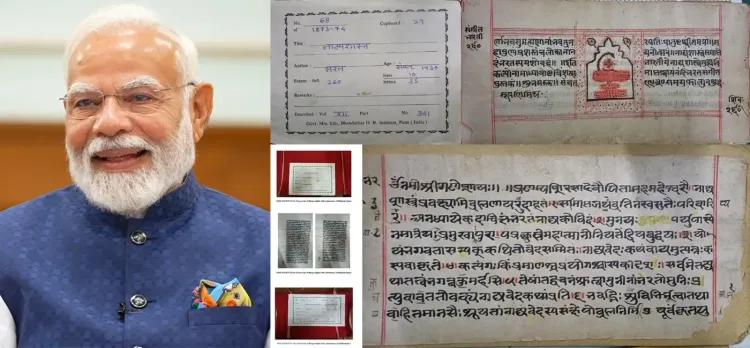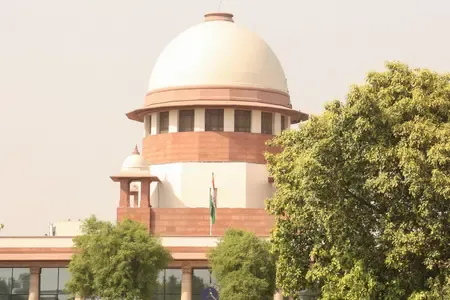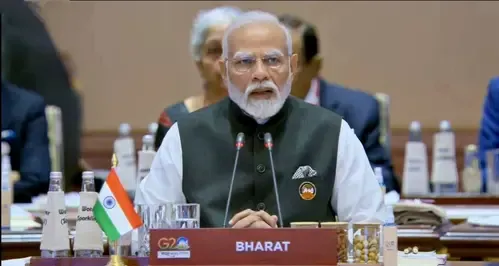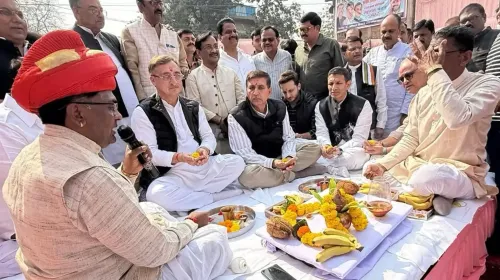UNESCO’s Memory of the World Register Welcomes Gita and Natyashastra, PM Modi Celebrates This Historic Achievement

Synopsis
Key Takeaways
- Shrimad Bhagavad Gita recognized in UNESCO’s Memory of the World Register.
- Natyashastra joins as a significant cultural treatise.
- PM Modi calls it a proud moment for all Indians.
- India now has 14 entries in the Memory of the World Register.
- Both texts are pillars of India’s intellectual and artistic heritage.
New Delhi, April 18 (NationPress) In an extraordinary achievement, the Shrimad Bhagavad Gita, a revered Hindu scripture, and Natyashastra, an influential Indian treatise on performing arts, have been officially recognized in UNESCO’s Memory of the World Register. Prime Minister Narendra Modi praised this milestone as a moment of pride for all Indians.
The announcement came from Union Minister of Culture and Tourism Gajendra Singh Shekhawat, who shared the news on X, stating, "The Shrimad Bhagavad Gita & Bharat Muni’s Natyashastra are now inscribed in UNESCO’s Memory of the World Register."
He also referred to this as a significant moment for Bharat’s civilizational heritage, adding, "This global accolade celebrates India’s eternal wisdom & artistic brilliance."
He stressed that these works transcend mere literary significance—they serve as philosophical and aesthetic foundations that have deeply influenced India’s perspectives on thought, emotion, expression, and life.
Prime Minister Narendra Modi described this event as 'a proud moment for every Indian worldwide.'
"The inclusion of the Gita and Natyashastra in UNESCO’s Memory of the World Register exemplifies global recognition of our timeless wisdom and rich culture. Both the Gita and Natyashastra have shaped civilization and consciousness for centuries, and their insights continue to inspire the world," he wrote in a post on X.
The UNESCO Memory of the World Register acknowledges documentary heritage of exceptional universal significance. It encompasses texts, manuscripts, and documents that have markedly shaped human history and continue to influence future generations.
With this recent addition, India now boasts 14 entries in the esteemed Memory of the World Register.
The Bhagavad Gita, a sacred dialogue between Lord Krishna and Arjuna on the battlefield of Kurukshetra, is a segment of the Mahabharata. It consists of 700 verses distributed across 18 chapters, tackling profound philosophical inquiries while promoting action, selflessness, and devotion. The text synthesizes key components from Vedic, Buddhist, Jain, and Carvaka traditions, establishing it as a cornerstone of India’s intellectual and spiritual legacy. The Gita has been studied and translated worldwide for centuries.
The Natyashastra, credited to the sage Bharat Muni, is the foundational text on Indian performing arts, covering theatre, dance, and music. It has influenced classical art traditions over the ages and continues to serve as a vital resource for artists and scholars.









